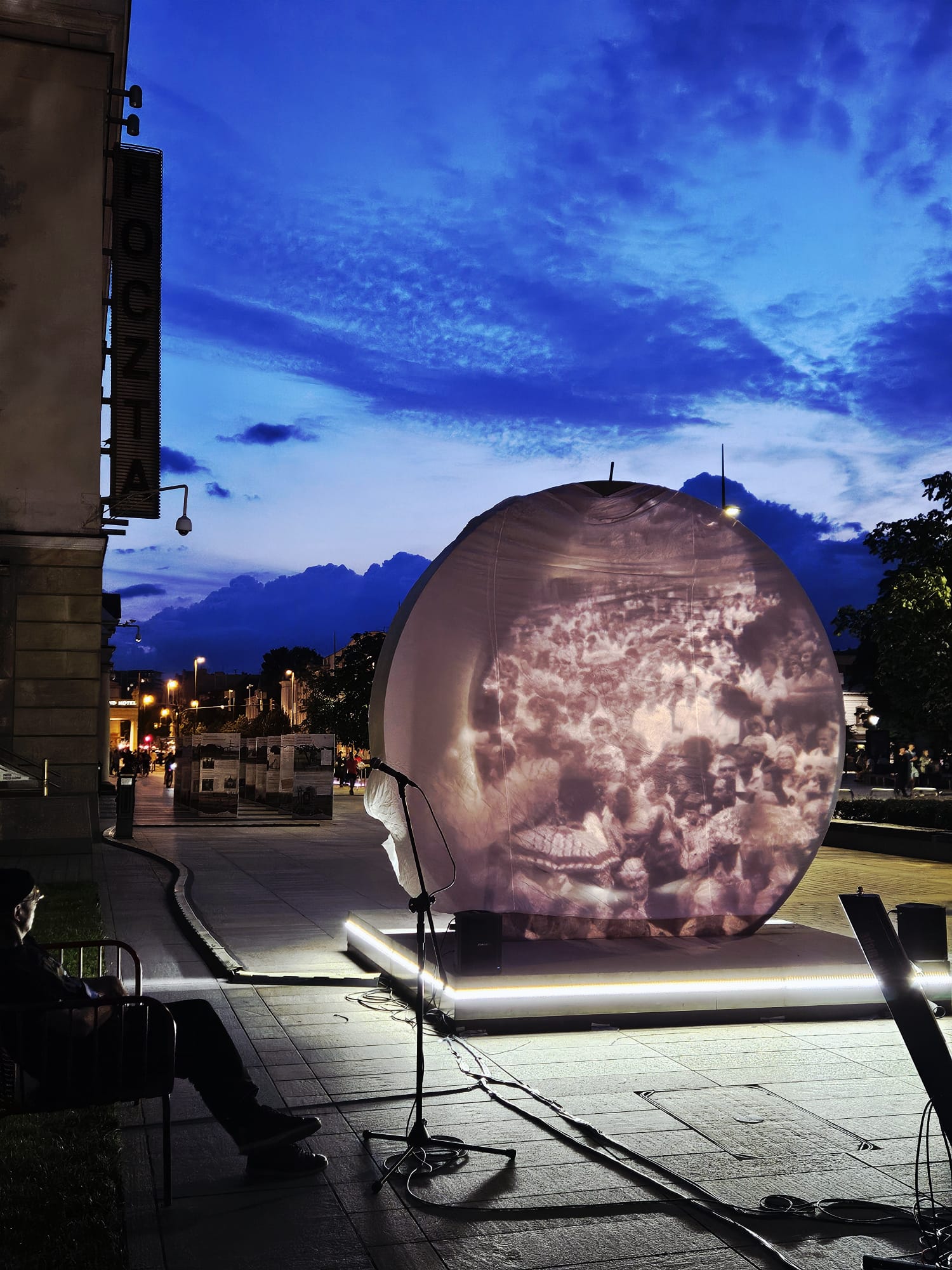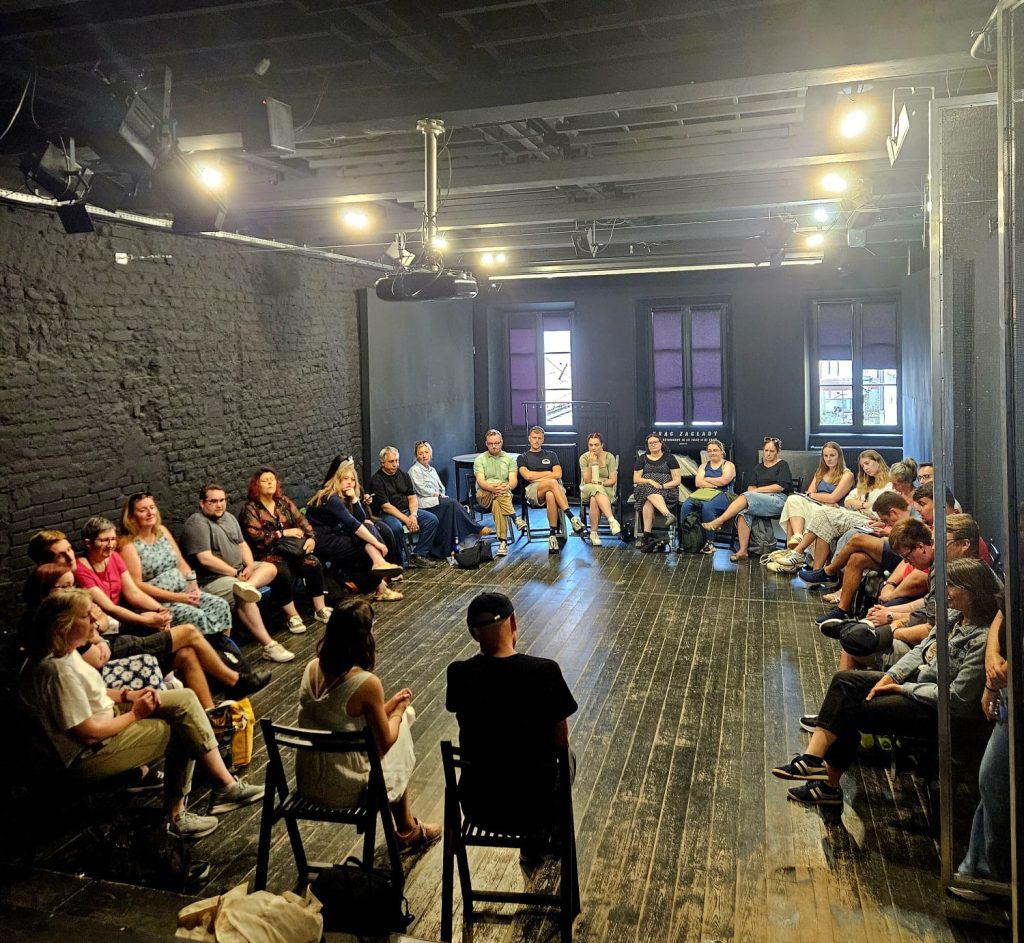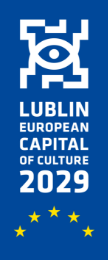
The “Grodzka Gate – NN Theatre” Centre in Lublin, as part of its preparatory work for the project “The City’s Tale”, has created a detailed program structure entitled “The Circles of the Gate Theatre”. This structure is the result of intensive conceptual work and expert consultations carried out both with local creative communities and with national and international partners. The developed concept of the “Circles of the Gate Theatre” responds to the program assumptions outlined in the winning application Lublin 2029 European Capital of Culture RE:UNION, while also developing and concretizing the core ideas contained in that document.
The three key circles of the program—“Theatre of Imagination”, “Theatre of Memory”, and “Theatre of Freedom”—are distinct yet interconnected modules for implementing the “City’s Tale” project. Each circle is based on different aspects of Lublin’s identity and European history, engaging participants in reflection on cultural heritage, shared experiences, and contemporary challenges.
Below is a detailed description of each of the three circles within the project.

1. Circles of the Gate Theatre. The City’s Tale – Theatre of Imagination
The Theatre of Imagination casts new light on Lublin’s centuries-old history, taking audiences on a journey from its legendary origins to the dramatic events of World War II. The Underground Route invites visitors to explore the city’s evolution across the centuries, revealing its birth, growth, and pivotal moments. The Cellar under Fortuna immerses visitors in the daily life of former townspeople. Meanwhile, the Imaginarium Theatre unveils the mystical Lublin, introducing the world of legends and stories rooted in local tradition and culture.
All these spaces combine historical facts with elements of storytelling and interactive experiences, stimulating imagination and provoking deeper reflection on the past and its impact on the present. This is a platform for new projects aimed at activating the local community and promoting cultural heritage, encouraging dialogue on identity, social change, and the future of Lublin.
2. Circles of the Gate Theatre. The City’s Tale – Theatre of Memory
This project, centered around the Grodzka Gate, takes participants deep into one of the most tragic chapters of Lublin’s history—the Holocaust of Polish Jews. Its aim is not only to commemorate the victims but also to foster understanding and reflection on the mechanisms of evil. By focusing on the universal message of the dangers of totalitarianism, hate speech, and war, it encourages comprehension of the complex history of the city and its inhabitants.
The initiative employs modern educational methods, blending traditional narrative techniques with contemporary technologies. Through multimedia presentations, artistic installations, and interactive workshops, it enables audiences to experience history in an engaging, emotional, and empathetic way. At the same time, the project creates space for dialogue and discussion on Lublin’s difficult heritage, encouraging its residents to develop a personal connection with history and its influence on the identity of contemporary society.
3. Circles of the Gate Theatre. The City’s Tale – Theatre of Freedom
Implemented at the House of Words, this project is inspired by Lublin’s difficult history after World War II. It focuses on unlocking the potential of free speech as a tool for defending democracy, promoting social responsibility, and building civil society.
Through a wide variety of activities—exhibitions, performances, literary workshops, and public debates—the project reflects the power of resistance against totalitarianism, the struggle for human rights, and the defense of the most vulnerable.
The project places strong emphasis on education through art, engaging both the local community and international audiences in interactive experiences that provoke reflection on the past, present, and future. The House of Words becomes a place where freedom of speech is not only commemorated but actively practiced. It is a space where stories from the past inspire action in the present, reminding us of the importance of active participation in public life and the defense of democratic values.
The project comprehensively fulfills the goals of the European Capital of Culture related to promoting cultural diversity, intercultural dialogue, and mutual understanding in Europe. A key aspect of the Centre’s activities is creating space for open reflection on Lublin’s multicultural heritage and Europe’s shared experiences, particularly through an in-depth analysis of Polish-Jewish relations, commemoration of the Jewish community’s history, as well as counteracting antisemitism, racism, and ethnic prejudice.
Would you like me to make this translation more formal (for an EU/official project document), or keep it in a more accessible, cultural-promotion style for a wider audience?
